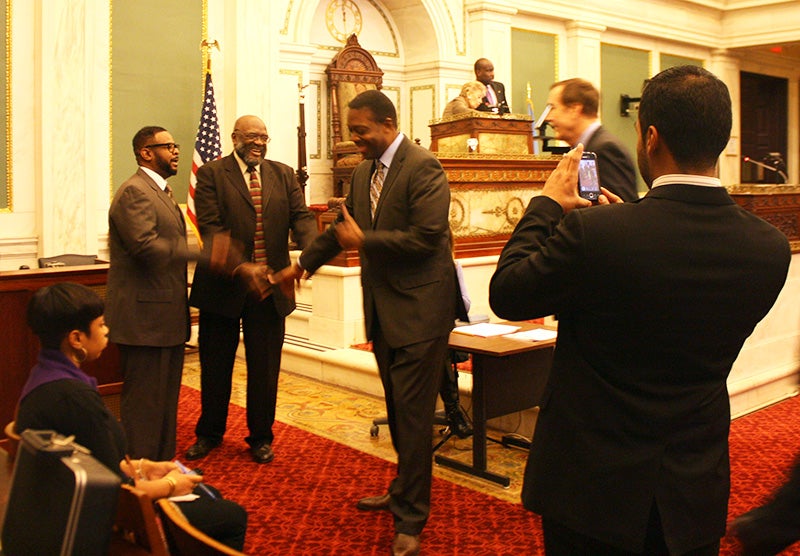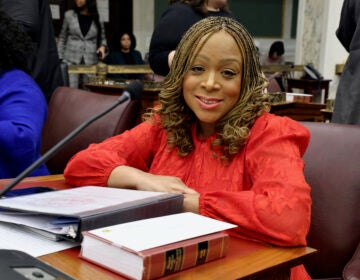City Council to hold its first session of 2012

A revamped City Council will hold its first meeting of 2012 Thursday morning, and its agenda is looking … not publicly available.
As of Wednesday afternoon, Council’s meeting agenda had not been posted online. So while we don’t know if any new bills or resolutions will be introduced or get a first reading on Thursday, we do know of some loose ends from last year that will presumably get Council attention at some point.
Two bills introduced by new Council President Darrell Clarke are of particular interest. Bills 110921 and 110922 were both introduced and referred to the Committee on Rules on December 15, 2011. If passed, both would have profound effects on land use in Philadelphia.
The first bill creates “Development Districts,” in which properties owned publicly could be transferred to the Redevelopment Authority and subsequently sold at deep discounts “for economic development purposes.”
The bill says that a Development District would be created in any census tract which meets two of the following criteria: ten percent or more properties are two or more years tax delinquent, ten percent or more properties are vacant, or ten percent or more properties are publicly owned.
The bill also provides an equation for discounting the properties to resell for private investment. It directs that properties be sold at a 50 percent discount from assessed value in any District wherein two or more of the characteristics are met at 10 percent, a 70 percent discount wherein two or more characteristics are met at 20 percent, and a 90 percent discount where in two or more characteristics are met at 30 percent.
So for example: if Property X is assessed at $50,000, is two or more years tax delinquent, and is in a census tract where 20 percent of total properties are vacant and 20 percent are publicly owned, it could be transferred to the Redevelopment Authority and sold for $15,000.
To ensure that any resold property is developed, the City would place a lien on it for the amount of the discount—$35,000 in the case of Property X. That lien would be removed only when L&I issues a Certificate of Occupancy.
The maximum time such a property could go unoccupied is 27 months after the sale date; developers would have 24 months to complete construction and another 90 days to obtain a Certificate of Occupancy.
Clarke’s second bill is aimed at generating revenue for the City without raising taxes, a goal he has indicated is central to his agenda as Council President.
The bill would amend both the Public Property title of the Philadelphia Code and the sign controls of the Zoning Code and make way for non-accessory advertising signs to be placed on municipal property. It cites “millions and even billions of dollars” in revenue generated by other cities that sell advertising rights on city buildings, including New York, Boston, and St. Louis.
The bill also instructs the Philadelphia City Planning Commission to develop regulations for the placement of such ads, taking into account factors like safety and the historical significance of the subject municipal properties.
In the absence of an agenda for Thursday’s meeting, PlanPhilly placed several calls—none of which was returned—to Council President Clarke’s office to find out whether these two bills would pass out of Committee and get a first reading by Council.
Check PlanPhilly Thursday for updates on these bills—and whatever else happens to be on the agenda.
Contact the reporter at jaredbrey@gmail.com
WHYY is your source for fact-based, in-depth journalism and information. As a nonprofit organization, we rely on financial support from readers like you. Please give today.






